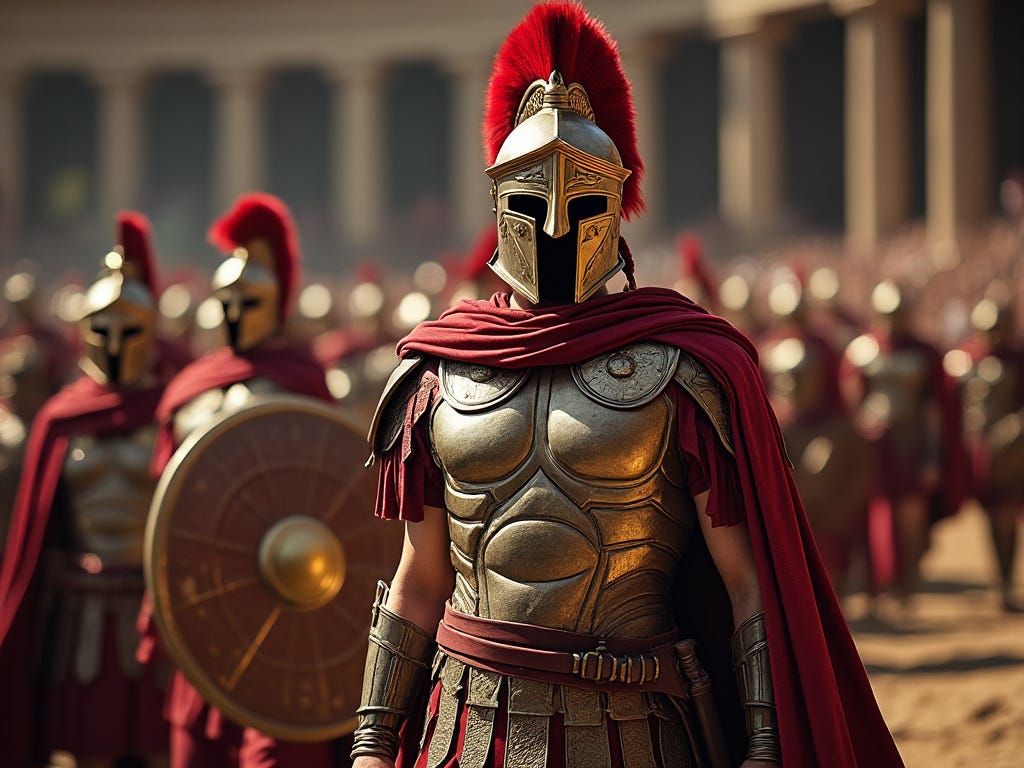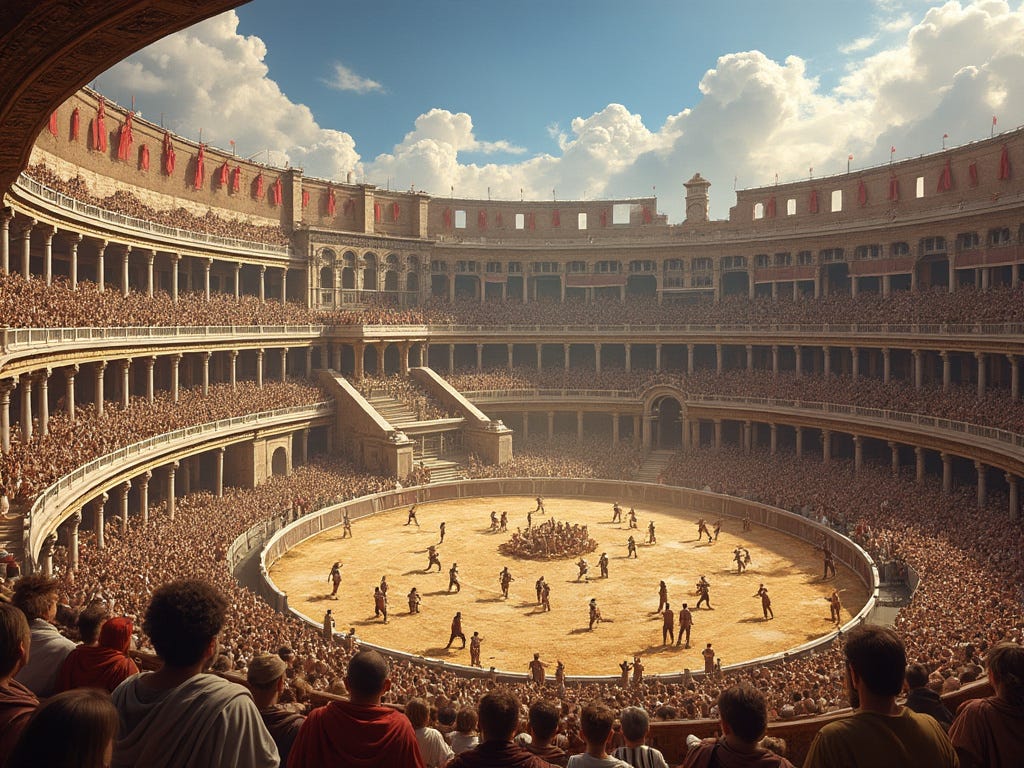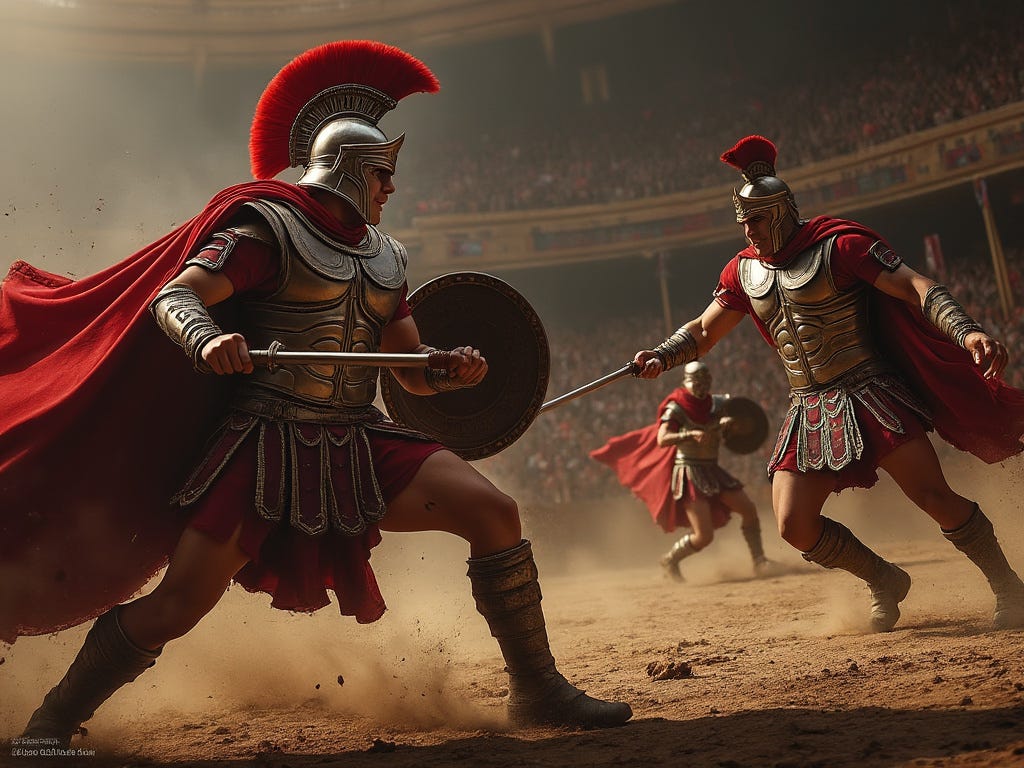I saw Gladiator II on Thursday night, and I just finished watching the original Gladiator. For the life of me, I can't understand what the hell Ridley Scott was thinking. There is absolutely no comparison. It also makes me wonder if he even wrote the sequel.
The entire screenplay of the original is a masterclass in storytelling. The actors are believable, and the pace of the story kept you intrigued. No such luck this time. Perhaps it’s the absence of truly great actors who are no longer with us, like David Hemmings, Oliver Reed, and Richard Harris, to name a few. The sequel spent too much time "throat clearing," and the returning cast members almost seemed as if they didn’t want to be there—or didn’t even know who they were. Hard to explain. If you see it, you’ll understand exactly what I mean.
I wonder if we’ll ever see any more good screenplays in my lifetime. Hollow Wood (Hollywood) seems to be consumed with this mindless woke drivel and just seems directionless, like they’re not even interested in writing relatable stories anymore. Yes, Rome had "twin" emperors at one point, and I suppose this was an introduction to a dichotomy that would never work. I mean, two brothers who have barely reached maturity in charge of the entire "civilized" world at the time seems a bit of a lampoon on leadership—and I guess that’s what the story was trying to capture?
This movie seemed a tad too focused on decadence and vileness for the sake of being decadent and vile. Sure, there were recapitulations of the first story, but they almost seemed entirely unnecessary. Perhaps the intent was to show how profoundly weak, immoral, and unconcerned people, whose only purpose in life is to gain favor or move up the pecking order, had become. If Scott’s aim was to give us a window into how effeminate men could be in the ancient world, he also succeeded here.
I mean, let’s think about this. We’ve heard it said: weak men create a weak civilization, and perhaps this was part of the point? This seems to be a theme Scott was attempting to drum into the observer, which is to say that the ancient pagan world of antiquity isn’t so different from today. And apparently, the Senate didn’t do a great job of giving Rome back to the people in the first story. As a consequence, Rome just fell back into its old bad habits.
If Rome represents anything, it represents all that is opposed to holiness, virtue, integrity, or anything sacrosanct. All of ancient civilization—and even modern civilization—has this in common. The sum of human life, in these stories, was all for the purposes of conquest, entertainment, and little else.
There was some allusion to "Christianity," but the movie wasn’t at all interested in using that as any kind of backdrop or making it integral to the story. To be fair, neither was the first movie. I think I understand what Scott was attempting to do with the sequel, but Gladiator II just seemed like it was trying too hard to compete with the original, all while throwing a protagonist who seemed somewhat conflicted about his own bravado at the audience. He was not what I would call a "memorable" hero.
Denzel Washington's character was perhaps the only one that made sense—well, sort of, but not really—because we didn’t learn anything about him until near the end. The movie’s plot was profound only in the sense that it seemed to echo the confused state of things in present-day America—if that makes any sense. If this is what Scott was attempting to do, maybe he succeeded? I guess?
But Gladiator II was not at all a memorable movie for me, nor one I would enjoy watching ever again.







